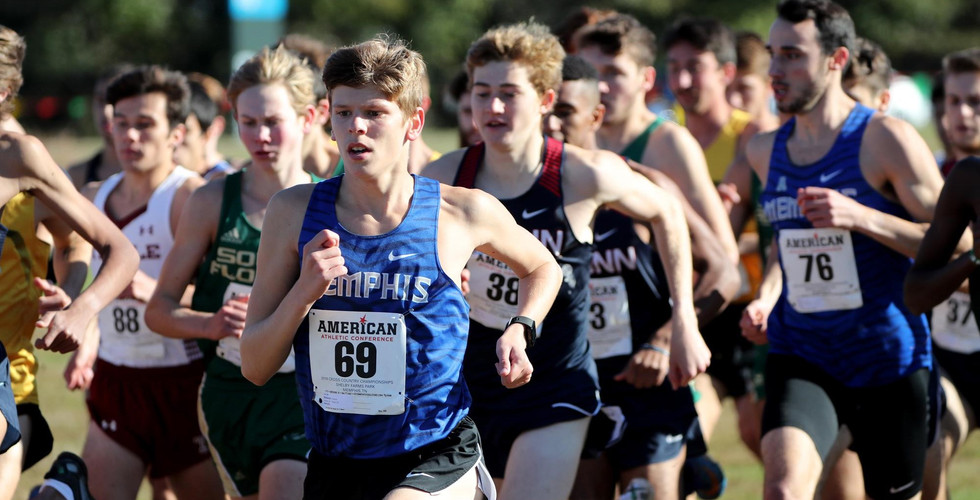- Lucas Finton
- Oct 9, 2020
- 3 min read
Spending six years of his early life on the soccer pitch, Payton Gleason expected his high school experience to be filled with running up and down the turf. After his freshman season, he took part in a sport that many soccer players do in the offseason: track and field. He would finish that season with promising performances; ones that would ultimately lead him to become one of the University of Memphis’ star athletes.
Gleason has never been one for taking the easy road. Although his parents pushed him to continue pursuing his soccer career, he made the “extremely difficult” decision to put the sport behind him to follow his new goals as a distance runner.
“I see the ability to get yourself to the point of complete exhaustion in the most efficient way in any race as the most impressive skill in sports,” he said. “I want to emulate that feeling as many times in my life as I can; because the success story after it and the journey leading up to it make it all worthwhile.”
Standing at just under six feet tall, his slender figure and long legs give him what is commonly considered the prime body type for long-distance running. But simply being shaped like a distance runner is not enough to be the first to the finish.
“I’m not built like an athlete,” Gleason said. “I'm skinny, so you don’t see guys like me playing any of the major sports like football, baseball or basketball. But running requires more mental toughness than all of those sports combined.”
Having the ability to enter a headspace that allows each athlete to push themself to their limits, and even beyond, is crucial. Some learn this trait through years of practice, but, according to Paul Glor--Gleason’s high school coach--, this was never the case for the young runner.
“He has always had that mental toughness,” Glor said. “I don't know how he got it; but if it was raining sideways and awful outside, he would stand at the door with his winter gear and be ready to brave the elements while the others went right to the treadmills.”
His high school career proved to be a success by the time his senior year came around. His performances had piqued the interest of many schools such as the University of Marquette, La Salle University, Xavier University and the University of Memphis (UofM). Although each campus had something great to offer him, he said that Memphis was special.
“Each of them were unique in their own way, as they should be, but Memphis just stuck out,” he said. “The football team brings in a lot of revenue for Memphis athletics so the facilities were just unbeatable. The weather was great, the campus was beautiful and the coaches were knowledgeable. They have all excelled in the Division 1 level and after college, in their perspective events so it was really reassuring.”
Like most things in life, even the best decisions have certain risks that come with it. Gleason was the first commitment of that recruiting year and when he signed his letter of intent to join the UofM, he had been the only recruit on a team with a mere two returning athletes.
“It was scary, but I had a lot of faith that the coach was going to bring in some great athletes with the space he had, and he did,” he said. “We ended up having an 11 person class come in which is something you can only dream of.”
As just a sophomore, Gleason was named as one of two captains on a team full of young men his own age. On a team of his peers, he said he thought it would be difficult to be seen as a leader and not just a friend. However, after a few days in the role, the two merged together naturally.
“Nobody is afraid to ask me questions and nobody is hesitant to do something if I request them to do it. I think this is because they trust that I would only tell them to do so if it was for the better,” he said. “So on the outside, it may seem tough to lead a bunch of freshmen and sophomores; but once we get to practice, you would not be able to tell how little experience we had with the NCAA and college training.”
Although being a collegiate runner is a rigorous lifestyle to live, Gleason said he would not trade it for anything.
“It is honestly surreal,” he said. “I will never take any NCAA competition for granted. Many teams get to dump Gatorade on their coach, dogpile a player after a game-winning goal, shot or homerun; but we just collapse. Crossing the finish line and not being able to take another step is our way of celebrating victory.”















